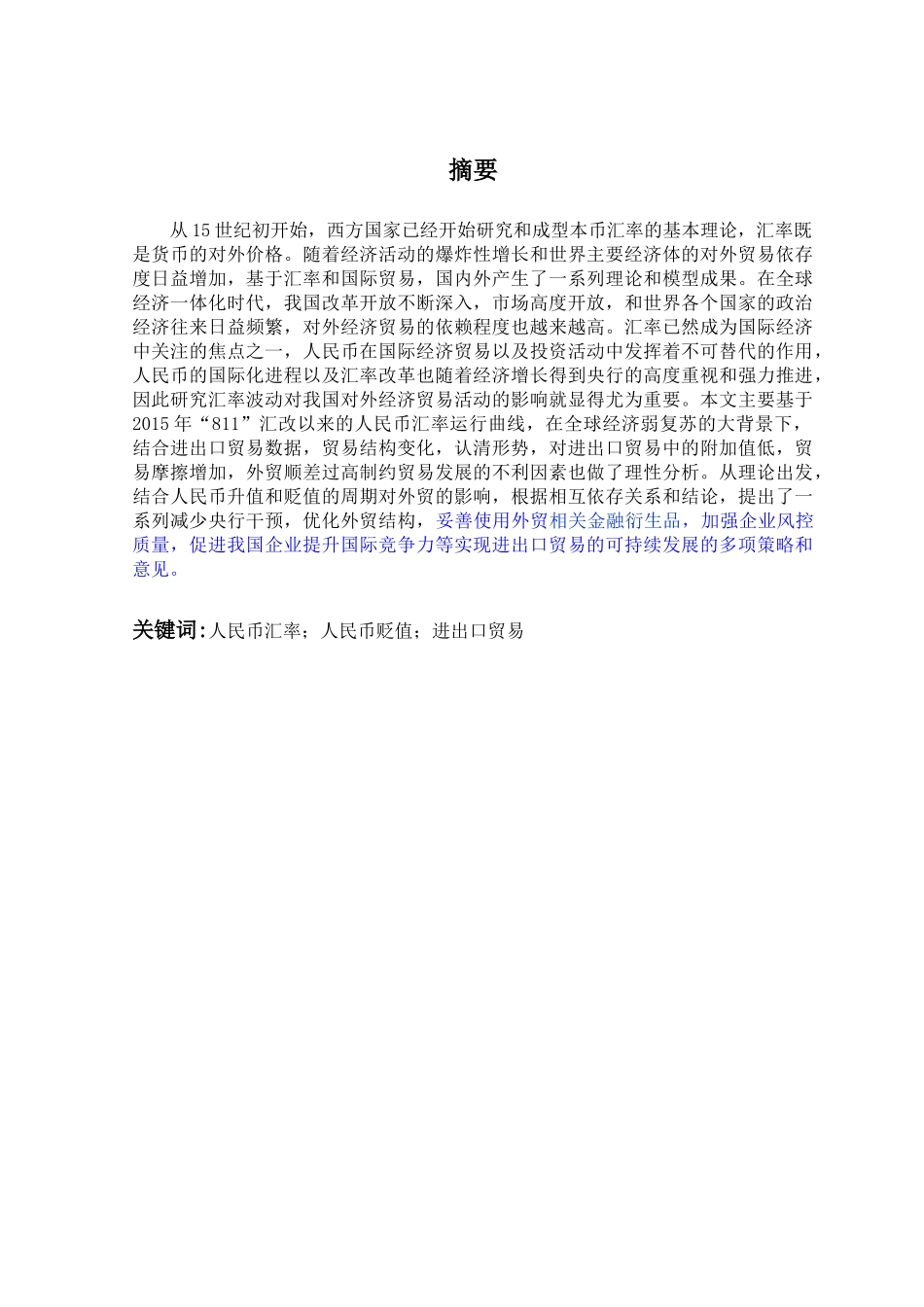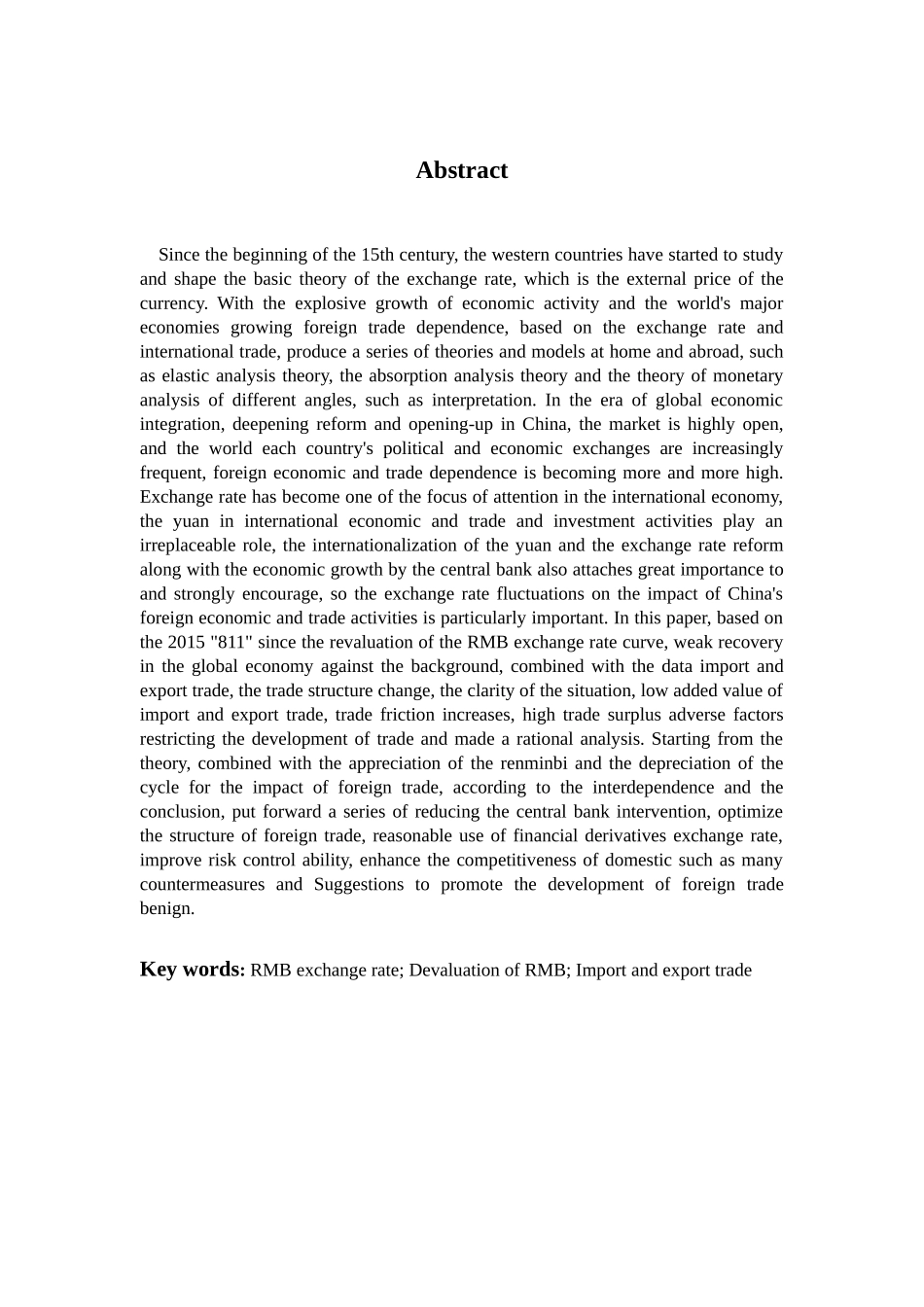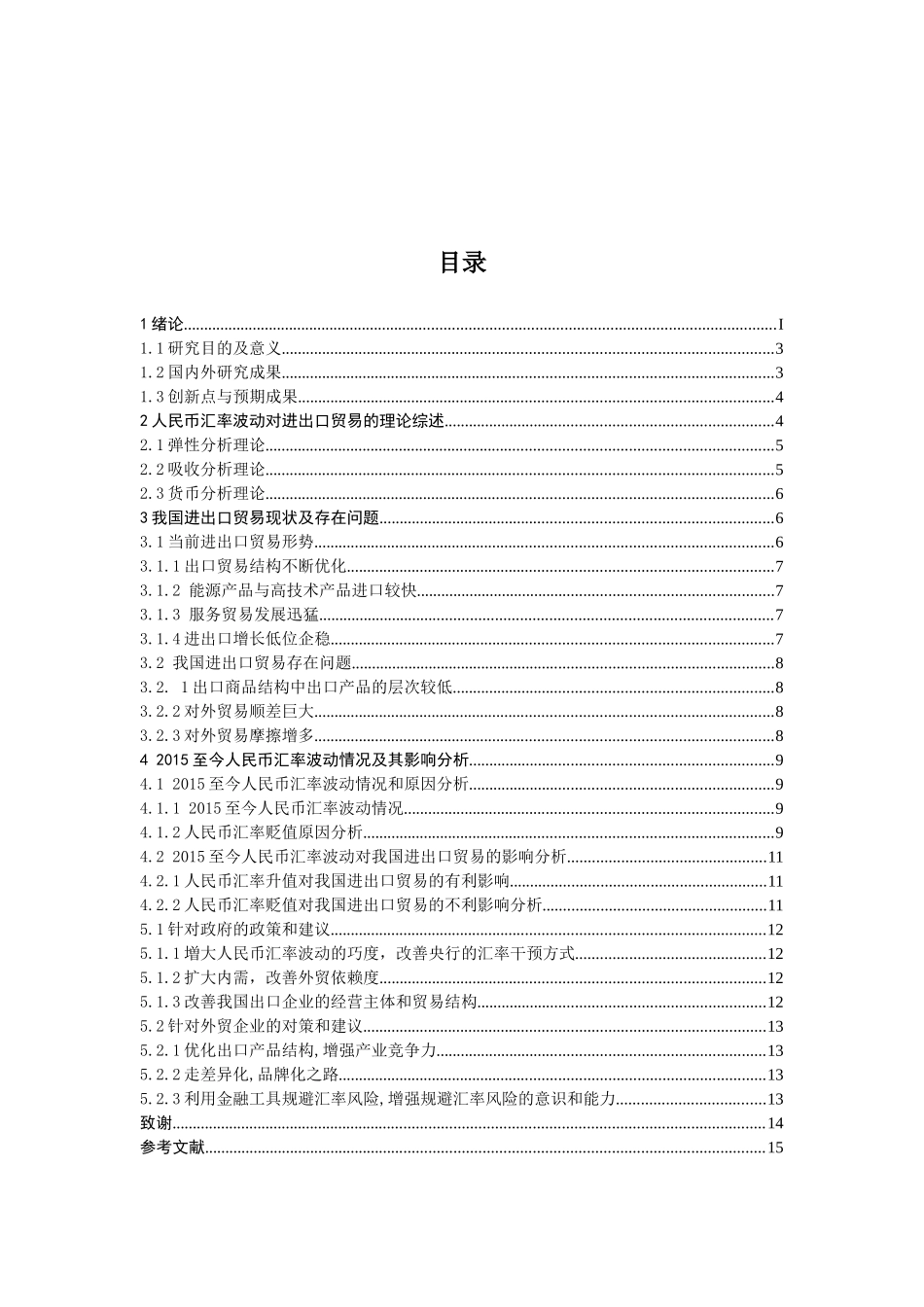摘要从 15 世纪初开始,西方国家已经开始研究和成型本币汇率的基本理论,汇率既是货币的对外价格。随着经济活动的爆炸性增长和世界主要经济体的对外贸易依存度日益增加,基于汇率和国际贸易,国内外产生了一系列理论和模型成果。在全球经济一体化时代,我国改革开放不断深入,市场高度开放,和世界各个国家的政治经济往来日益频繁,对外经济贸易的依赖程度也越来越高。汇率已然成为国际经济中关注的焦点之一,人民币在国际经济贸易以及投资活动中发挥着不可替代的作用,人民币的国际化进程以及汇率改革也随着经济增长得到央行的高度重视和强力推进,因此研究汇率波动对我国对外经济贸易活动的影响就显得尤为重要。本文主要基于2015 年“811”汇改以来的人民币汇率运行曲线,在全球经济弱复苏的大背景下,结合进出口贸易数据,贸易结构变化,认清形势,对进出口贸易中的附加值低,贸易摩擦增加,外贸顺差过高制约贸易发展的不利因素也做了理性分析。从理论出发,结合人民币升值和贬值的周期对外贸的影响,根据相互依存关系和结论,提出了一系列减少央行干预,优化外贸结构,妥善使用外贸相关金融衍生品,加强企业风控质量,促进我国企业提升国际竞争力等实现进出口贸易的可持续发展的多项策略和意见。关键词:人民币汇率;人民币贬值;进出口贸易AbstractSince the beginning of the 15th century, the western countries have started to study and shape the basic theory of the exchange rate, which is the external price of the currency. With the explosive growth of economic activity and the world's major economies growing foreign trade dependence, based on the exchange rate and international trade, produce a series of theories and models at home and abroad, such as elastic analysis theory, the absorption analysis theory and the theory of monetary analysis of different angles, such as interpretation. In the era of global economic integration, deepening reform and opening-up in China, the market is highly open, and the world each country's political and economic exchanges are increasingly frequent, foreign economic and trade dependence is becoming...


